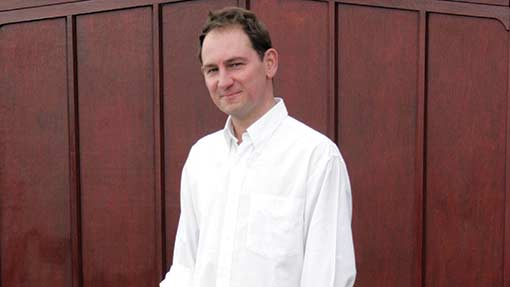Opinion: Does farm technology make us smarter?

I suppose, as a potato grower, I should be excited about the trial work at the John Innes Centre in Norfolk.
Their attempts to transfer the genetic characteristics of a blight-resistant member of the solanum family from South America to a traditional UK-grown potato variety appear to be yielding some very promising results.
It takes a lot to excite me these days, though. I am a middle-aged farmer from Lincolnshire, not a teenage girl. I have developed a natural scepticism towards anything new. My instinctive reaction when I am confronted with an emerging technology is, at best, weary resignation.
This state of mind has crept up on me. Once I loved new ideas. When you are young, you feel like the number-one striker in the team; every day is filled with opportunities to score new victories. After a few decades in agriculture, it still feels like a sports match only you feel like the ball rather than one of the players. Do you feel that you are serving the technology rather than the other way around? Sometimes I crave the simplicity of the past.
See also: Have your say on this topic on our forum
We had a demonstration of a Fendt tractor last year and, after many years of driving John Deere models, the complexity of the controls filled me with horror.
I had to fetch someone in their 20s to explain to me how to make it go forwards.
While I accept that technical evolution is largely a good thing, I fear being dragged away from the principles of good husbandry that experience has taught me.
I am not against genetic modification. As far as I am able to understand it, I realise how it could benefit the human race.
“Once I loved new ideas. When you are young, you feel like the number-one striker in the team; every day is filled with opportunities to score new victories. After a few decades in agriculture, it still feels like a sports match only you feel like the ball rather than one of the players.”
Matthew Naylor
As a potato grower, I am not opposed to growing a transgenic variety in principle. I like the idea of using fewer fungicide applications. I would need to be certain that my customers would buy it.
I would have to feel assured that it wouldn’t present any agronomic issues in the future. My biggest concern would be how the cost of the intellectual property was going to affect my profitability.
Where any new agricultural technology is concerned, that last question is the pertinent one. The question that we should always ask of new gadgetry is “will this actually benefit me?”
Too often we have willingly adopted gimmicky new practices which, ultimately, have simply raised our costs or increased our dependence on other businesses. I think my cynicism is healthy.
I am no stockman but I can remember being impressed many years ago when I first saw the electronic cow tags that enabled a computer to meter out the correct ration for each animal. Now I would ask if a computer can really judge a cow’s needs better than the cow itself. I would wonder what happened in a power cut. I would look for the disadvantages first.
It is very important that farmers adopt the right ideas and support the correct manufacturers because, once a critical number of operators have adopted a new technology, the rules of the game are changed permanently for us all.
The novelty of new ideas is very seductive. They make our work look more sophisticated and, by implication, make us feel smarter.
The genuinely smart farmer, however, is the one who can see where technology will increase their competitive advantage and not just raise the speed of their treadmill.
Matthew Naylor farms 162ha (400 acres) of Lincolnshire silt in partnership with his father, Nev. Cropping includes potatoes, vegetables, cut flowers and flowering bulbs. Matthew is a Nuffield scholar.

